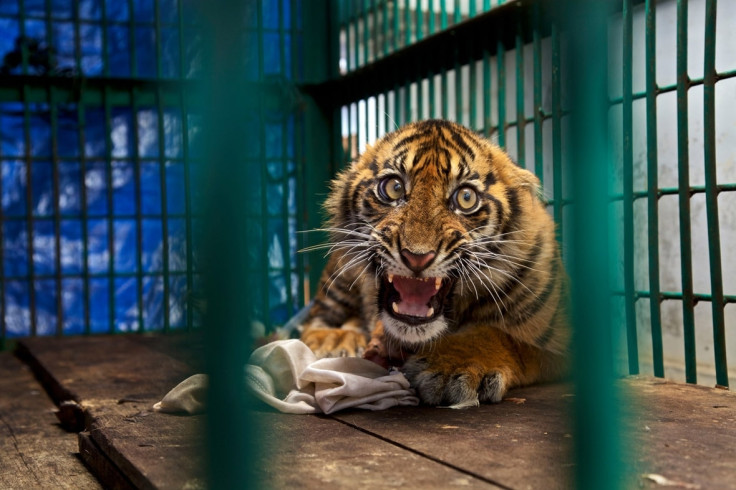Man-eating Indian tigress electrocuted on farmer's fence, ending armed hunt
A state court issued a shoot-to-kill order on Friday, after the beast claimed its latest victim earlier this month.

A man-eating tigress that killed four villagers in the west Indian state of Maharashtra has died after being electrocuted, ending an armed hunt for the beast.
The animal was electrocuted by a fence put up by a farmer to keep out wild boar, wildlife officials said on Sunday (15 October).
A state court issued a shoot-to-kill order on Friday against the two-year-old tigress after its latest victim, a woman, died earlier this month.
Wildlife activists had challenged the shoot-to-kill order first authorised by the state forestry department on 23 June, but the court rejected their appeal late last week.
"She [the tigress] died at 2:30 am after getting electrocuted. We have recovered the body," Rishikesh Ranjan, field director of Pench Tiger Reserve said.
The tigress was first captured in July after killing two people and injuring four in the town of Brahmapuri, in Maharashtra. It was set free in Bor Tiger Reserve later, but killed two more people.
The latest attack, which saw a woman killed by the tiger last week, prompted authorities to approve a shoot-to-kill order against the tigress, named Kala.
"She has killed four people and injured four others. We can shoot her but we would prefer to capture and tranquillise her," Ranjan said at the start of the hunt last week.
Ranjan said officials were tracking the tiger using GPS and wanted to catch her as soon as possible because she is "spreading panic amongst villagers".
"In her last killing she consumed a major chunk of the victim's body," he added.
India is home to more than half of the world's tiger population with some 2,226 of the animals in the country, according to the last count in 2014. However, the animal's habitat is continually under threat by and poachers who kill them for body parts used in traditional Chinese medicine.
Instances of human-animal conflict have been increasing in India, where shrinking animal habitats often drive elephants, tigers and leopards into residential areas.
Earlier this a leopard month halted production at one of India's largest car factories, was tranquillised by wildlife rescuers 36 hours after it was first spotted prowling inside the plant, which covers 600 acres.
The big cat was eventually captured by wildlife workers and police officers who spotted the leopard in the engine workshop of the huge Maruti Suzuki factory in Manesar town, not far from the capital, New Delhi.
The beast was released back into the dense forests around the nearby Aravalli hills.




















